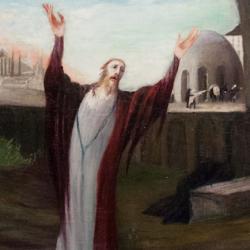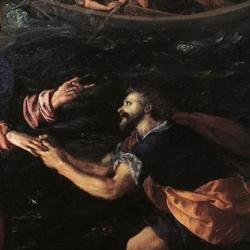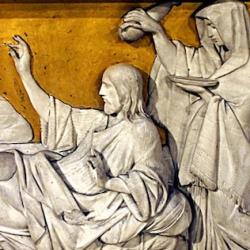INTRODUCTION
Like Moses (Numbers 27:17), Jesus sees that Israel is like sheep without a shepherd (Matthew 9:36), a field white to harvest. Moses gave authority to Joshua to lead Israel in and out in conquest; Jesus gives authority to the Twelve to carry out another conquest (10:1).
THE TEXT
“And when He had called His twelve disciples to Him, He gave them power over unclean spirits, to cast them out, and to heal all kinds of sickness and all kinds of disease. Now the names of the twelve apostles are these . . . .” (Matthew 10:1-15).
THE TWELVE
For the first time Matthew refers explicitly to the specific group of “twelve disciples” (10:1; cf. 9:37). The number, as always, is significant: Jesus chooses the twelve patriarchs of a new Israel. “Disciples” are students, and Jesus has many more than twelve students. The Twelve are different because they are given authority over unclean spirits and diseases (10:1) and thereby become “apostles” (10:2). An “apostle” is a representative who acts on behalf of a master, with the full authority of his master. The Twelve are not simply students, but bear the authority and carry out the work of Jesus as His delegates.
STRUCTURE
Jesus’ second great discourse in Matthew is a chiasm (from Davies and Allison):
A. The Twelve extend Jesus’ work, 10:5-15.
B. Persecution from family and Jews, 10:16-23.
C. Persecuted like Jesus, 10:24-25.
D. Do not fear, 10:26-31.
C’. Confessing Jesus, 10:32-33
B’. Persecution from family, 10:34-39.
A’. Whoever receives the Twelve receives Jesus, 10:40-42.
Jesus’ assurance that the Father cares for the Twelve is at the center of the passage, surrounded, like the apostles themselves, with persecution.
LOST SHEEP OF ISRAEL
Jesus comes proclaiming the kingdom, healing, and casting out demons (4:23-25). Jesus has taught (Matthew 5-7) and done wonders (Matthew 8-9), and now it is time for the Twelve to carry out the same mission. They are to proclaim the kingdom (10:7) and heal as Jesus has done (v. 8). Their mission is confined to Israel (v. 5). As Paul says later, salvation comes to the Jew first and also to the Greek. Israel was the light to the Gentiles, and the apostles’ mission gathers the distressed sheep of Israel so that Israel can become that light.
NO GOLD
Jesus instructs His disciples to take no money or a change of clothes (vv. 9-10). Instead, they are to depend on the generosity of those whom they serve (vv. 11-13). It’s not enough to receive the apostles’ message; to receive Jesus, people will have to provide concrete aid to His representatives. The towns that don’t receive Jesus and His apostles face a judgment more devastating than that of Sodom and Gomorrah (v. 15).











